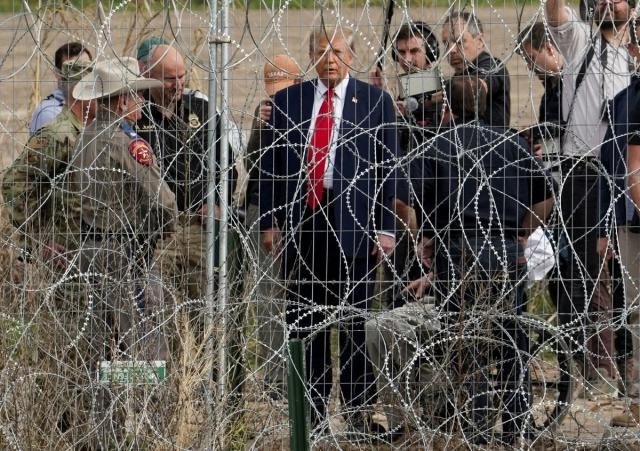The situation continues to worsen for Haitians under the Trump administration. In a single day, President Trump made two major decisions significantly affecting Haitians, both in their home country and in the United States. President Donald J. Trump issued a new presidential proclamation this Wednesday restricting or prohibiting the entry of foreign citizens from several nations deemed to pose risks to American national security.
Haiti is among the twelve countries subject to a complete entry ban, according to an official White House document.
This initiative falls under Presidential Executive Order 14161, titled “Protecting the United States Against Foreign Terrorists and Other Threats to National and Public Security“, signed on January 20, 2025, the day President Trump was sworn in for his second term.
“Our sacred responsibility is to protect the American people from those who might harm them by entering our territory,” President Trump stated in his declaration.
According to U.S. authorities, the Republic of Haiti shows significant deficiencies in its identity verification systems and security cooperation.
The administrative report reveals concerning overstay rates: 31.38% for tourist visas (B1/B2) and 25.05% for student, professional, and exchange visas (F, M, and J).
The White House also emphasizes a massive increase in irregular Haitian immigrants in recent years, which has, according to their analysis, “compromised the security of American communities” by facilitating the establishment of criminal networks and increasing security risks. “Haiti lacks an effective central administration capable of providing or sharing essential security information to ensure its citizens do not pose a threat to the United States,” states the official document.
Alongside Haiti, eleven other nations face a complete entry ban: Afghanistan, Burma, Chad, Republic of Congo, Equatorial Guinea, Eritrea, Iran, Libya, Somalia, Sudan, and Yemen. These states have been identified as having “deficient” identity verification and security systems or maintaining connections with terrorist organizations.
The presidential directive also establishes limited restrictions for seven additional countries, whose citizens will undergo enhanced scrutiny for tourist, academic, or short-term visa applications: Burundi, Cuba, Laos, Sierra Leone, Togo, Turkmenistan, and Venezuela.
The executive order nevertheless provides exemptions for legal permanent residents, current valid visa holders, and certain categories deemed of “national interest.”
The administration states that this policy also aims to encourage better cooperation with the affected countries, pushing them to strengthen their migration control measures.
The White House bases its authority on a Supreme Court legal precedent (Trump v. Hawaii) that validated in 2018 the use of Section 212(f) of the Immigration and Nationality Act, granting the president the power to restrict entry to the United States for security reasons.
“We are going to reinstate the travel ban — some call it the Trump travel ban — to block the entry of radical Islamic terrorists,” President Trump declared, referencing a central campaign promise.
This proclamation represents a significant shift in immigration policy under the Trump administration, which appears to be adopting a more restrictive approach regarding entry into American territory, including for students and tourists. These measures could directly impact hundreds of Haitian students and other foreign nationals enrolled in American universities.






